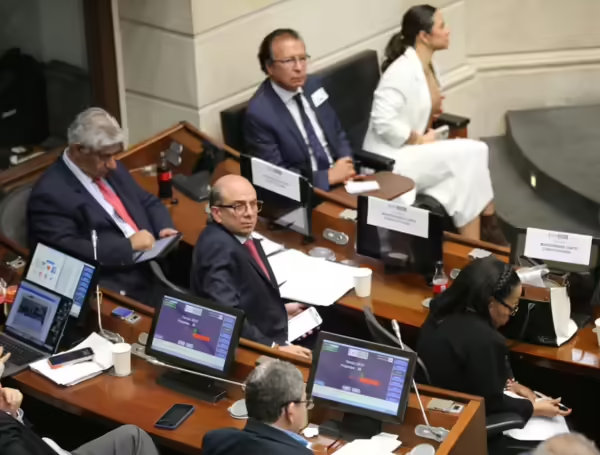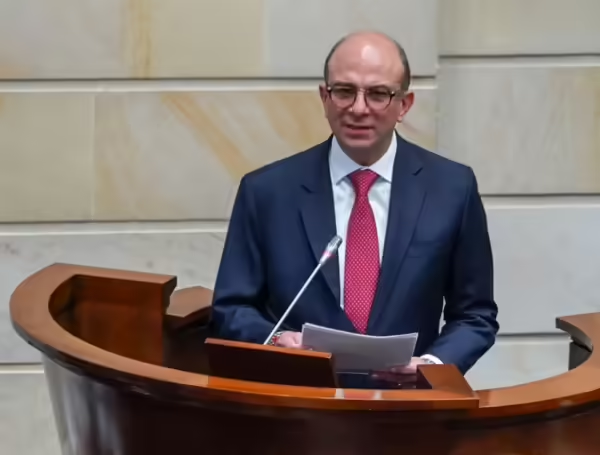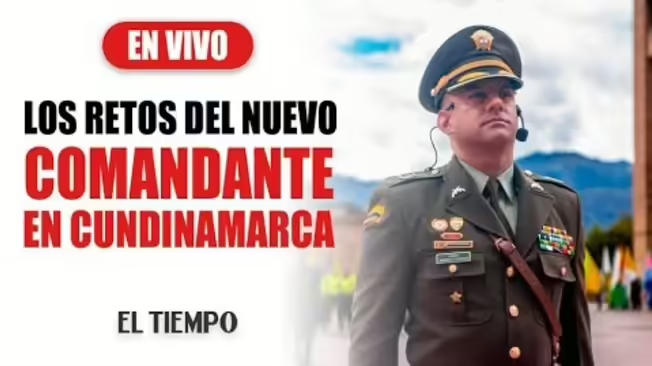With a vote of 62-41, former Ombudsman Carlos Camargo was elected by the Senate as the new justice of the Constitutional Court. He is part of the block of four justices chosen in the last year, who join the five in the Plenary Chamber, the body that acts as a filter for the execution of laws and decrees.
Lawyer Camargo is a native of Cereté, Córdoba, and a graduate of Sergio Arboleda University, with a specialization, master's degree, and doctorate in law. He was Ombudsman during the Duque administration, between September 2020 and January 2024, when he resigned. He also served as Vice-Rector for University Outreach at Sergio Arboleda University.

During his career in public office, Camargo served as a judge on the National Electoral Council and director of Fedepartamentos (Fedepartamentos), before being nominated to the Ombudsman's Office. On August 14, 2020, he was elected by the House of Representatives with 140 of 155 votes to head that entity of the Public Ministry. He received the support of the Conservative Party, the Liberal Party, the U Party, and Radical Change, the same parties that now, from the Upper House, once again supported him in his election as a judge.
"This moment represents for me the assumption of an ethical and legal duty: to rigorously contribute to the defense of the constitutional order, the guarantee of fundamental rights, and the strengthening of the social and democratic rule of law," Camargo stated during his address to the Supreme Court's Plenary Session, during the public hearing in which he was selected to join the shortlist.
Due to her aspiration, a tense discussion broke out in the Plenary Chamber of the Supreme Court, after 10 judges declared themselves unable to vote in the preselection because they had relatives who had obtained contracts in Camargo's Ombudsman's Office. The impediments were denied and the high court in full proceeded to decant the three candidates: María Patricia Balanta, Carlos Camargo and Jaime Humberto Tobar.

Before the Senate on Wednesday, September 3, the now Cordoba-born magistrate highlighted his legal career, which, he said, has allowed him to travel the country and gain firsthand knowledge of its challenges and needs."From academia, the public sector, the private sector, the international sector, and as Ombudsman, I have worked to consolidate strong institutions and have witnessed the importance of strengthening a justice system that is accessible and reliable for citizens," he stated.
He also spoke about his time at the Ombudsman's Office, where he experienced firsthand the"exclusion of millions of Colombians." Based on this reality, he highlighted his contributions to the reform of the Victims' Law, the implementation of the peace agreements, and the protection of human rights.
He then reaffirmed his independence and emphasized the Court's role within the framework of checks and balances with the other branches of government.
"At a time when authoritarian rhetoric is gaining ground and judicial decisions are being openly challenged, it is essential that the Court reaffirm its commitment to democracy. Not through confrontation, but through argumentative consistency," he asserted.


